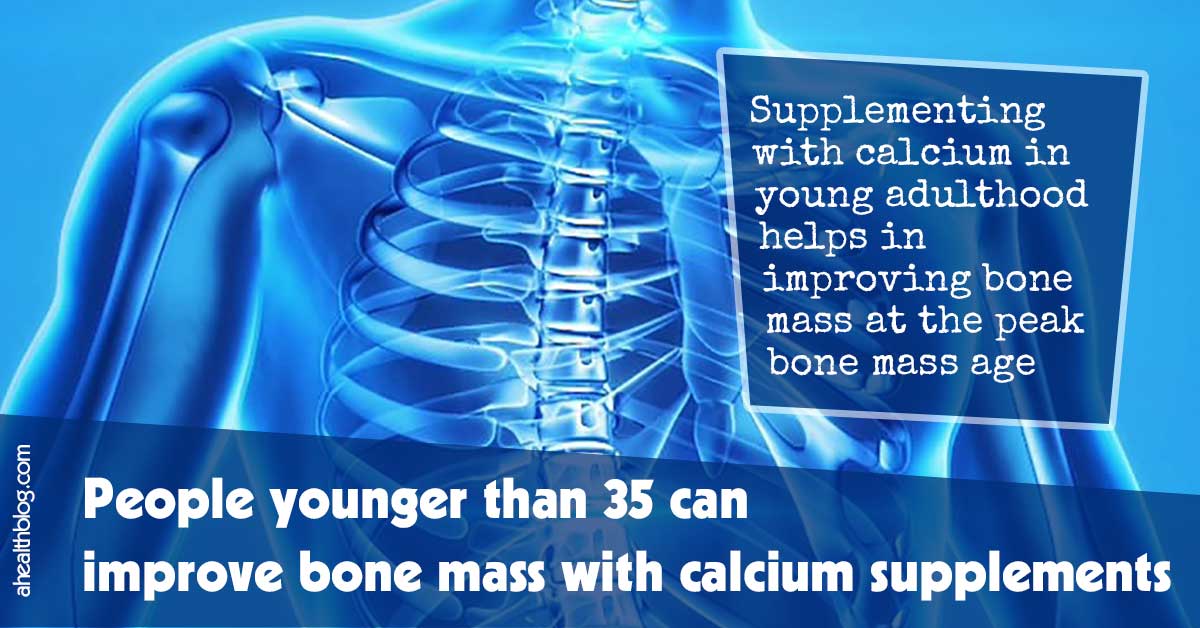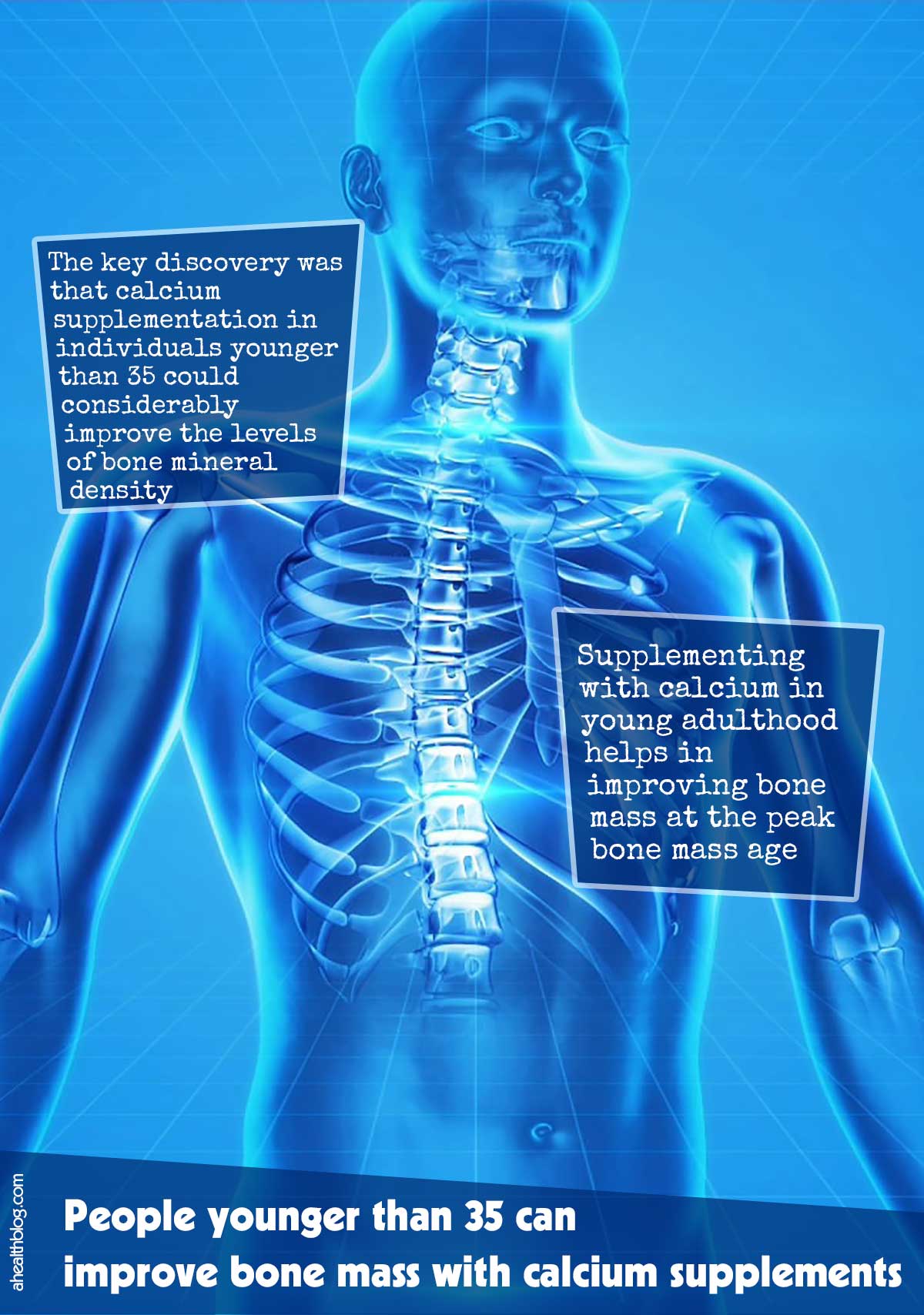Supplementing with calcium in young adulthood helps in improving bone mass at the peak bone mass age, which provides a potential opportunity for treatment to prevent osteoporosis later on in life.1✅ JOURNAL REFERENCE
DOI: 10.7554/eLife.79002
Study results deliver new insights and evidence on the benefits of supplementing with calcium and indicate that individuals should start considering bone health at a young age.
Fractures and osteoporosis are worldwide public health issues of significance, especially in older women. Although supplementing with calcium has been used extensively in the elderly to help increase bone mass, several studies indicate that it’s unlikely to result in fracture reductions that are clinically meaningful.
Treatment before young individuals achieve peak bone density could however be more effective for bone health and help in preventing osteoporosis in later years.
There’s been extensive debate with regard to whether supplementing with calcium benefits bone health in younger individuals, so the researchers performed an extensive review of existing studies for calcium supplement efficacy in individuals younger than 35.
They looked for randomized controlled studies which compared calcium or a combination of calcium and vitamin D to no treatment or placebo in individuals younger than 35. They specifically reviewed results reporting bone mineral content or bone mineral density.
43 studies were included that involved over 7,300 individuals, of which 23 examined supplementing with calcium and 20 examined dietary calcium. They then combined these data to analyze bone mineral content changes and bone mineral density changes in the femoral neck, lumbar spine, total body, and total hip.
Their key discovery was that calcium supplementation in individuals younger than 35 could considerably improve the levels of bone mineral density of the femoral neck as well as total body, with slight increases in the bone mineral content of the lumbar spine, total body, and femoral neck.
The most noticeable improvement was seen in individuals in the peri-peak bone mass age between the ages of 20 and 35 when the bone mass levels off in comparison to individuals in the pre-peak bone mass age younger than 20 years.
Both supplementing with calcium and dietary calcium sources positively affected bone mineral density of the total body and femoral neck, but measurements of the bone mineral content of the lumbar spine and femoral neck only improved after supplementing with calcium.
Vitamin D importance also had mixed results: a calcium and vitamin D combination was found to be of more benefit for bone mineral content and density of the femoral neck, but not for bone mineral content of the total body and lumbar spine, or bone mineral density of the total body.
The researchers conclude that supplementing with calcium can improve bone mineral content as well as density significantly, particularly in the neck, and that supplementation throughout the peri-peak bone mass age is more effective compared to treating with supplements earlier on or later on in life.
Even though more studies will be required to confirm these results, the review offers insight with regard to supplementing with calcium and the optimal timing for effectiveness.
With regards to bone health and the full life cycle of a person, the treatment time frame of supplementing with calcium should be started at the peak bone mass plateau age, which is about 20 to 35 years old.




